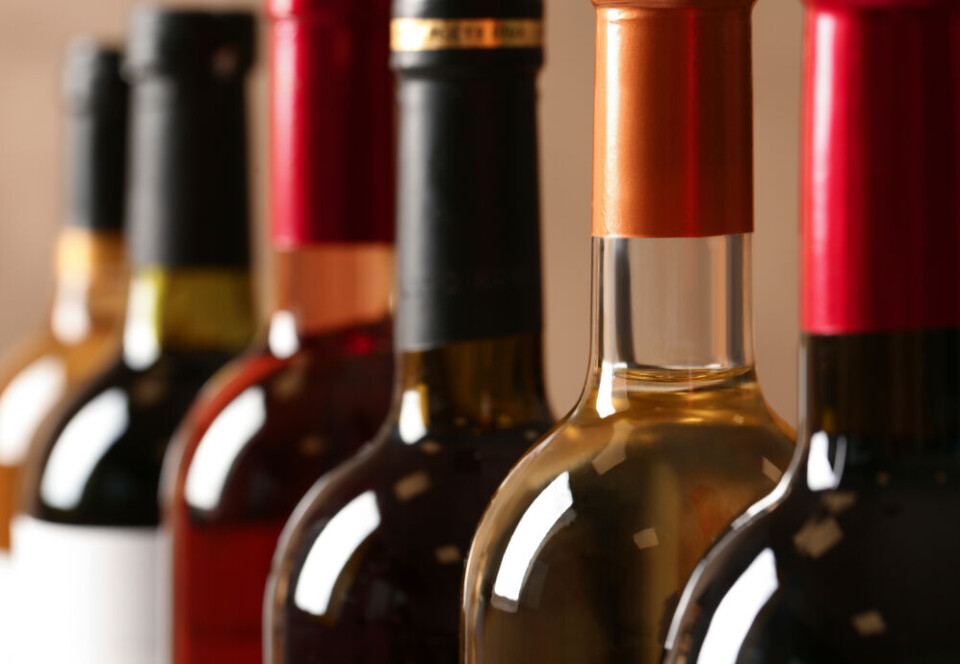-
Five departments on orange alert as heavy rain and floods continue in south of France
Conditions are expected to worsen through the afternoon
-
‘I saw flames’: Air France plane makes emergency landing in Lyon after technical fault
Flight carrying 173 passengers to Ajaccio diverted to Lyon-Saint-Exupéry on Saturday
-
Farmers’ protests ease but key motorway blockades hold firm in south-west France
Pressure on the government over its handling of cattle culls continues as Christmas nears despite a drop in protests
Anger as ‘Sud de France’ brand is banned from wine bottles
Critics say the decision is bureaucratic and shows the government lacks ambition when it comes to developing the wine industry

The government says the ‘Sud de France’ label is illegal and must be removed from wine bottles by 2025.
The move has sparked an angry reaction from the wine industry.
The label is currently used on wine produced in regions across Occitanie, including Aude and the Languedoc-Roussillon area, as well as many other regional products.
“The [agriculture] minister confirms that the wording 'Sud de France' on wine labels is not in compliance with the regulations,” said Pierre-André Durand, prefect of the Occitanie region. “Labels must be brought into compliance by 2025 at the latest. This deadline will allow the industry to get organised and use up existing stocks of labels.”
Viticulture : la disparition confirmée de la marque "Sud de France" sur les étiquettes de vin passe mal https://t.co/QPWsl34S6h via @lindependant
— L'Indépendant (@lindependant) July 25, 2023
What is the ‘Sud de France’ label?
Sud de France is a brand used by many wine producers in the Occitanie region and beyond. It was launched in 2006 by Georges Frêche, then-president of the former Languedoc-Roussillon region.
However, it is not the same as an ‘appellation’ or particular to one specific area of the south and appears on many products, including IGP (indication géographique protégée) and AOP (appellation d'origine protégée) wines, but also other items made in the region.]
IGP and AOP are certifications that certain products are made in a particular region, helping to protect them from imitations from elsewhere.
Denis Verdier, president of the Fédération des vins IGP du Gard, told France Bleu: “The idea was to say, we need to unite to be stronger. Winegrowing involves a lot of small and medium-sized businesses.
“They have to export because the national market is limited. The idea was to have an umbrella brand that would enable our appellations…to be stronger abroad.”
Read also: French wine appellations AOP and IGP - what is the point?
‘Against the grain of history’
Carole Delga, president of the Occitanie region and owner of the Sud de France brand since 2006, has condemned the ban in a press statement as “bureaucratic”.
She said it “goes against the grain of history” and shows the “government’s lack of ambition in developing the wine industry”.
The label had “helped to bring together and identify all of the region's products, with convincing results, particularly in terms of exports” for the past 15 years, she added.
Je regrette cette décision plus bureaucratique qu’économique et continuerai à me battre aux côtés des entreprises viticoles.
— Carole Delga (@CaroleDelga) July 26, 2023
Nous avons été précurseurs dans l’acte d’achat local et nous le serons demain avec encore plus de force.
International markets
Mr Verdier said the brand enables French products to be more easily identified abroad.
“In China and the United States, 'Sud de France' is more popular than a local IGP,” he said. “There has been significant growth in exports of varietal wines in particular, thanks to this umbrella brand, which was a way of raising awareness of the location of our production."
He said the decision to “get rid of the ‘Sud de France’ label” is a “strategic error that chooses bureaucracy over the commercial realities of export”.
Read also: ‘I fight for wine in French culture, heritage and economy’
‘No question of giving up’
The region’s producers have said they will respond by aiming to develop the label in the next few years, in a bid to continue its use without defying the ban - on wine bottles and other products too. This could take the form of an image rather than the words ‘Sud de France’, it has been suggested.
Ms Delga said: “With nearly 1,900 member companies and 13,500 products listed, the brand is a real lever for our companies and employment in every region.
“I take note of the government's decision, which goes against the grain of history, in order to protect businesses threatened with sanctions.”
René Moréno, Occitanie regional councillor for winegrowing, said: “We're told that it's being banned but no one is able to give us a reason. So there's no question of our region giving up, especially as it has invested so heavily in this brand.
“We're not going to give in to a decision that is more bureaucratic than regulatory. If we can't use this umbrella brand on labelling, we're going to work with the profession to come up with a visual that identifies or situates the Occitanie region, the world's leading winegrowing region."
Similarly, Ms Delga said that she would be continuing her efforts to build the region’s production despite the decision.
She said: “Because I believe in the future of winegrowing, because I know that consumers are more than ever keen to choose quality products with a recognised origin, I say to the entire industry that Sud de France-l'Occitanie will continue to develop strongly because it is a standard of our quality.
“We were pioneers in the act of buying locally. We'll be doing the same again tomorrow to promote our expertise in all markets.”
Read also
‘Sudden fall’: Concern over people drinking less wine in France
The wine industry is in constant evolution in France and beyond
























